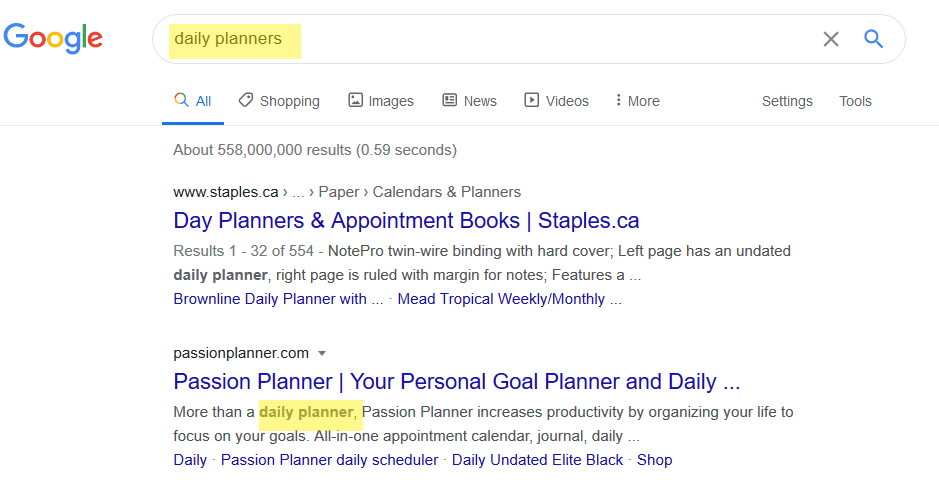If you have decided to become a freelancer, it’s likely that you already possess the most fundamental skill you’ll ever need in this business: writing.
Maybe you even have a Bachelor’s degree in English or journalism (which is more than many writers have!), and you feel like you’re ready to tackle anything.

[I]t takes a lot more than good writing to compete as a multifaceted professional in the freelancing world.
However, it takes a lot more than good writing to compete as a multifaceted professional in the freelancing world, especially if your goal is to generate a full-time income.
In fact, many freelancers fail within the first few years because they never develop the freelance skills necessary to thrive.
Let’s set you up for success by reviewing five of the most important freelance skills.
Top Freelance Skills Needed to Succeed
1. Business Management
The biggest favor you can do for yourself early in your career is to start thinking like an entrepreneur because that’s what you are.
Not enough freelancers realize this. They place far too much emphasis on the aspect of good writing, which is only part of the formula for success if you want to do freelance writing.
Start on the right foot by incorporating the following into your strategy from the get-go:
Financial Management
Basic elements include:
- Maintaining financial records, such as tracking income and expenses
- Budgeting and cash management
- Filing taxes
- Investing funds to achieve growth
Pro tip: consider hiring an accountant for a few hours a month to manage this angle of your business.
Networking
Research shows that as many as 80% of jobs are filled through networking, meaning that most jobs aren’t even listed!
Networking is an important freelance skills you should work on early in your journey.
Most people find work through people they know, and this rings true for many freelancers.
For example, my husband is currently writing a book and was recently looking for an editor. He didn’t even have to search for one online. Instead, he found someone through a family member, and it came about through a casual conversation.
Networking may come as second nature if you have a sales background, but if not, it can seem scary. Check out these tips to help get you started.
Project and Time Management
Want to manage a client portfolio and meet deadlines successfully?
If so, these freelance skills – time management and productivity – need to be in your arsenal. The key is to develop effective systems. And whatever you do, don’t use your brain as your primary storage method! Trello, Evernote, Clockify, and other apps are there to help you preserve your mind for its chief purpose: creativity.
“Your brain is a thinking tool, not a storage device.” – David Allen
2. Website Building and Graphic Design
You might have entered this game thinking: “I don’t want to run a blog, so why do I need to know anything about how to build a website?”
News flash: a lot more clients than you think could require you to have these freelance skills. For example, they may need you to manage the back end of their blog websites as well as create content for them.
Even if they don’t, you will need this skill to market yourself constructively. One of the best ways to attract high paying clients is by having a professional-looking website that displays your skills, portfolio, rates, and other pertinent information.
Don’t let the fear of the technicalities limit your versatility; you don’t have to be a coding wiz to have a decent website.
Here’s an example of a great, inexpensive course that can teach you how to set one up quickly and painlessly.
The same goes for graphic design. Some clients may want you to write for them and create accompanying visual content. For example, serious bloggers will tell you that a critical tool used to drive traffic to their website is Pinterest, a search engine that thrives upon visually stimulating graphics.
Nowadays, tools such as Canva make graphic design more straightforward than it’s ever been. Their free version does the trick quite nicely, so depending on your needs, it may not even cost you a cent.
3. Marketing and Self-Promotion
 One of your most significant assets as a business owner is your ability to sell yourself.
One of your most significant assets as a business owner is your ability to sell yourself.
Selling yourself and marketing your business are top freelance skills every freelancer should learn.
In today’s world, the vast majority of consumers are online. This makes it critical to understand the basics of digital marketing, which is all about using social media and other virtual tools to create a robust online presence.
Some recommended online marketing tools for freelance writers include:
- Social media accounts: popular sites such as Instagram, Pinterest, Facebook, Twitter, and LinkedIn provide excellent platforms to share your portfolio and let people know that you are available for hire
- Running a blog or guest blogging: use these strategies to hone your craft, demonstrate your writing abilities, and create relationships with existing freelance writers
- Email marketing: remember how 80% of people find jobs through personal connections? Pitching is the perfect way to create relationships that will secure future work. Rather than wait for clients to come to you, be proactive, and go after them!
4. SEO Writing
Every business that has an online presence wants its platforms to rank highly on search engines (such as Google or Pinterest) so that customers can find them easily.
Search engine optimization (SEO) is about understanding the language of the online world and the psychology of consumers. For example, I am obsessed with planners.
As a consumer, if I type “daily planners” into Google, the online store “passionplanner.com” is one of the first things that pops up. There are thousands of online planner stores across the globe, so this is not a coincidence; it’s partly the result of SEO tactics used effectively throughout this company’s website.

What does this mean for you? SEO is a highly complex field – and an important freelance skill – that takes time to master, so don’t overwhelm yourself at the forefront. The most basic level to start with is understanding how to weave commonly used keywords into web content, making it as visible on the internet as possible.
There is an infinite number of SEO tools available, but one of the easiest ones to look into as a beginner is Google Keyword Planner. This resource helps you to brainstorm keyword ideas that you can use for creating ad campaigns or web content that will attract customers for your client. Plus, it’s free!
5. Self-Development
The business world is ever-evolving, and that means freelancers need to be just as adaptable to remain competitive. Self-development is the umbrella under which all the other freelance skills mentioned earlier fall.
This freelance skill is always essential no matter what stage you are in your career, but it is especially important in the beginning.
When starting out, you aren’t yet at the point where you specialize in a niche that will allow you to charge hundreds of dollars per piece; your focus is on getting as much experience as possible. Most beginners gain that experience through gigs posted on job websites, where there are thousands of employers that require a variety of often unrelated services.
The more freelance skills you have, the more jobs you have a shot at landing in these early stages. If you continue to develop these skills, eventually, they will earn you higher-paying clients.
So how do you expand your prowess?
Fortunately, there are inexhaustible free resources out there. YouTube, for instance, is an extraordinary place to learn about digital marketing, entrepreneurship, SEO, grammar, and pretty much anything else you can imagine at no charge.
The one drawback of free resources is that it often takes ages to piece them all together to develop a working knowledge of a subject area; you can potentially spend hours spiraling down an endless rabbit hole of information.
This may not be the best approach if you’re in a hurry to get your freelance career off the ground.
Wherever possible, take courses that will help you fast-track your learning curve. You don’t have to spend a fortune to do this. Platforms such as Udemy and Skillshare offer courses packed with valuable information at very reasonable prices. With the right knowledge, you can quickly recover the cost of your investment within a few months as you secure writing gigs.
Freelance Skills Take Time to Master
Let’s end with some food for thought:
“When opportunity comes, it is too late to prepare.” – John Wooden
Don’t procrastinate; get to work on making yourself more marketable. Prepare yourself for opportunities!
What skill will you work on today? Let us know in the comments!



Leave a Reply